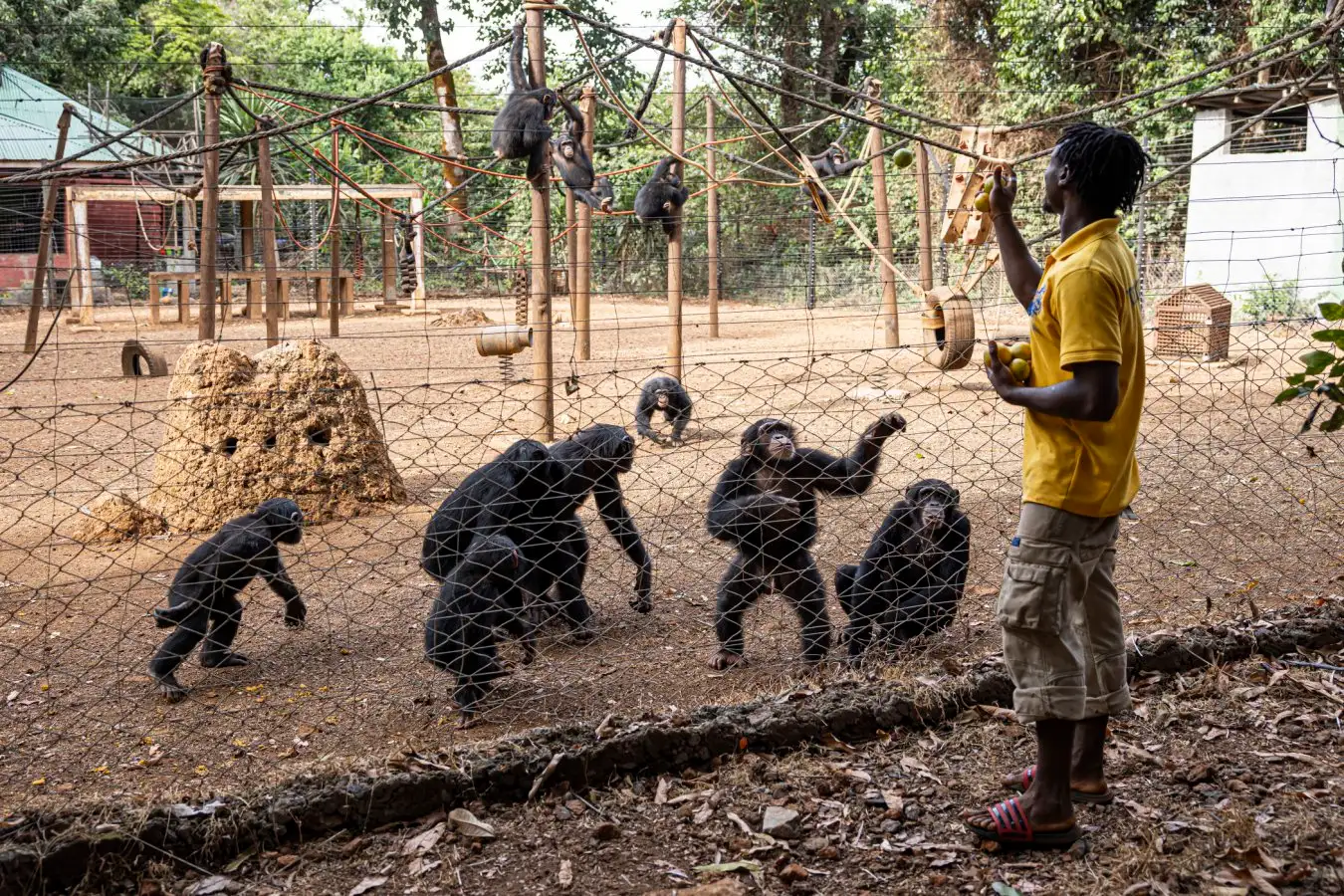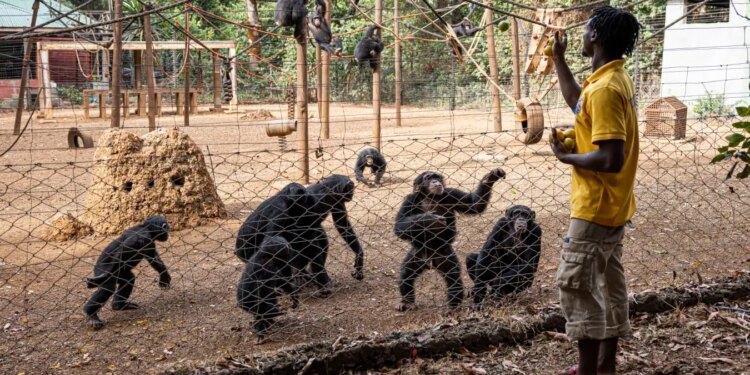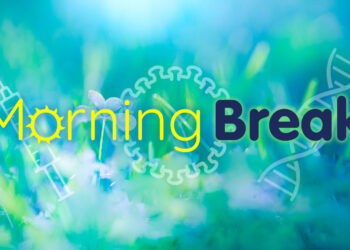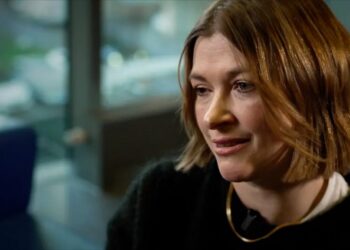
Tests of chimps’ intelligence often take place in labs, not in the wild or in sanctuaries like this one
PATRICK MEINHARDT/AFP via Getty Images
The Arrogant Ape
Christine Webb, Abacus, UK; Avery, US
IN THE beginning, God made man in his image, granting him dominion over every living thing that moves upon the earth. Most people don’t look to the Bible to understand the world and our place in it, yet this view of humans as superior to nature and non-human life is sneakily persistent.
The characteristics said to distinguish humans and justify our dominance – including the ability to reason, use tools, feel pain, act morally – aren’t exclusively human, it seems. Chimps, crows and others show nuanced intelligence, have complex social bonds and use tools; fish and crustaceans feel pain; bees are cultural beings; even plants may have senses akin to ours.
The concept that Homo sapiens is supreme in a natural hierarchy may be best ascribed to a “human superiority complex”, argues primatologist Christine Webb in The Arrogant Ape: And a new way to see humanity. In this deeply felt, searching but rigorous work, based on a seminar she taught at Harvard University, Webb sets out to dismantle this perceived exceptionalism. In so doing, she shows it to be rooted in religious tradition, among other distinctly human constructs, and reveals how it distorts scientific understanding and hastens ecological breakdown.
The belief that humans are special “flies in the face of Darwinian notions of continuity between species”, which emphasise differences “that are a matter of degree rather than kind“, Webb writes. Yet, she argues, it is a hidden undercurrent in research.
This is evident in our interest in other primates and “charismatic” mammals, favoured as “like us”, she writes, while we overlook plants, fish and the majority of Earth’s life. It is also seen in how we hold animals to unequal or arbitrary standards. Take comparisons of intelligence between humans and other apes, most of which contrast captive chimps with autonomous Western humans, despite the lab constraints affecting chimps’ behaviour, development and functioning.
Troubled by the ethics of captivity as well as the potential limitations of the resulting research, Webb only works with apes in the wild and in sanctuaries. Those intimate, often profound encounters inform her belief that more non-human beings are likely to possess some kind of consciousness, or “minded life”.
Webb expects critics to see this as anthropomorphism, a “cardinal scientific sin”. She counters that the strenuous resistance to observing similarities between humans and other species can unduly complicate the scientific process and undermine conclusions. The insistence on certainty about animal cognition or experience is also a double standard, Webb argues: can we really ever be sure about any other consciousness than our own?
Dismantling this isn’t just essential for understanding the world in all its magnificence and diversity, Webb writes, it is the first step to “a radically humbler approach”. Only by accepting ourselves as animals no better than others, and as much a part of nature, can we counter the destructive capitalistic forces driving outbreaks of zoonotic diseases, mass extinctions, the climate crisis and ecological breakdown.
Webb proposes we expand “good science” to include insights and knowledge from Indigenous cultures on how all life is unique, irreducible and entwined. She acknowledges the challenge, declaring human exceptionalism “the most powerful unspoken belief of our time”, but argues the process of unlearning it can reawaken a connection with nature and inspire awe – even advocacy for animal welfare and the environment. In The Arrogant Ape, she highlights this “stubborn ideology” and its harms, and models the humility, curiosity and compassion that may undo it.
Elle Hunt is a writer based in Norwich, UK
Topics:
Source link : https://www.newscientist.com/article/mg26835692-100-smart-new-book-takes-an-axe-to-the-myth-of-human-exceptionalism/?utm_campaign=RSS%7CNSNS&utm_source=NSNS&utm_medium=RSS&utm_content=home
Author :
Publish date : 2025-11-12 18:00:00
Copyright for syndicated content belongs to the linked Source.







